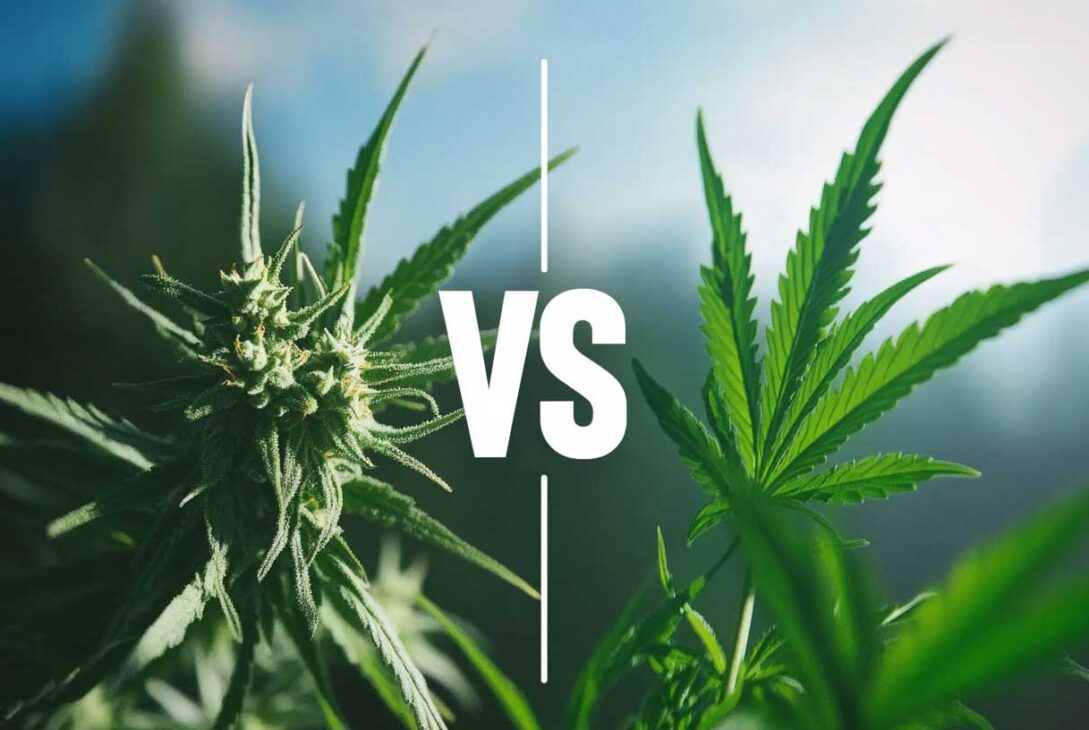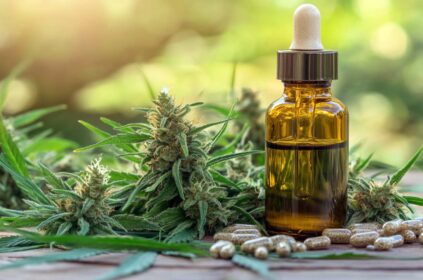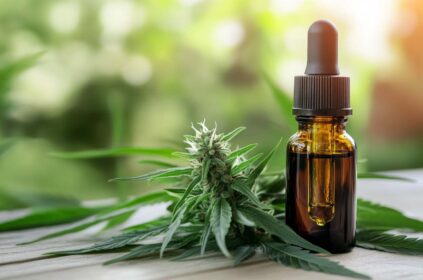In the rapidly expanding world of hemp-derived products, two cannabinoids have captured the interest of many: Delta-8 THC and CBD. Although stemming from the same plant, these two compounds offer distinct experiences and benefits. This guide aims to clarify the differences and similarities between Delta-8 THC and CBD, enabling you to make an informed choice about which might best suit your needs.
Understanding Delta-8 THC and CBD
Delta-8 THC
Delta-8 THC, or Delta-8 tetrahydrocannabinol, is a psychoactive compound that occurs naturally in the hemp plant but in very small concentrations. To produce usable amounts, it is typically synthesized from CBD or other cannabinoids. Delta-8 binds to the CB1 receptors in the brain, which is similar to the more familiar Delta-9 THC but with a significantly milder psychoactive effect. Users often describe the Delta-8 experience as a gentle buzz, resulting in feelings of relaxation and contentment without the intensity associated with Delta-9 THC.
CBD
Cannabidiol, or CBD, is a non-psychoactive cannabinoid that is abundantly found in hemp. Unlike Delta-8, CBD does not create any euphoric feelings and is celebrated for its therapeutic properties. Many people turn to CBD for its potential to aid various health issues without the high that THC can induce.
Effects of Delta-8 THC
Delta-8 THC offers a unique set of effects that users can find beneficial. Here are some of the most commonly reported effects:
- Mild Psychoactivity: Many users find Delta-8 THC to create a euphoric and relaxing sensation that is less intense than that of Delta-9 THC. This milder effect often leads to feelings of lightness and clarity.
- Increased Energy and Focus: Unlike its Delta-9 counterpart, Delta-8 can provide a subtle boost in energy, making it appealing for daytime use without overwhelming mental haziness.
- Appetite Stimulation: Users frequently report an increase in appetite similar to Delta-9 THC, making Delta-8 a potential aid for those needing to regain their appetite.
- Relaxation and Sleep Aid: Those seeking to unwind may find Delta-8 beneficial, as it can induce a relaxing state which may improve quality of sleep.
Effects of CBD
On the other hand, CBD provides several distinct effects:
- Non-Psychoactive: The biggest draw for many is that CBD does not create a high, allowing individuals to experience its potential benefits without altering their mental state.
- Physical and Mental Relaxation: Users often experience a sense of calm and relaxation, easing physical tensions while allowing cognitive function to remain intact.
- Anxiety Reduction: Many turn to CBD for its anxiolytic properties, which may help reduce feelings of anxiety and promote a sense of well-being without psychoactive side effects.
Benefits of Delta-8 THC
The benefits of Delta-8 THC are increasingly gaining attention:
- Pain Relief: Some studies suggest that Delta-8 may offer more effective pain relief by binding more effectively to CB1 receptors, possibly making it a better option for those dealing with chronic pain.
- Neuroprotective Properties: Emerging research indicates that Delta-8 may influence the production of acetylcholine, a neurotransmitter involved in learning and memory.
- Anti-Nausea Effects: Delta-8 shows promise in alleviating nausea, making it relevant for individuals undergoing treatments like chemotherapy.
- Anxiety Relief: Studies indicate that Delta-8 THC may lessen anxiety symptoms, offering a gentle pathway to relaxation.
Benefits of CBD
CBD presents a host of benefits as well:
- Therapeutic Potential: Research supports CBD’s role in managing pain, reducing anxiety, and improving sleep quality, all without producing a high.
- Inflammation Reduction: CBD is praised for its anti-inflammatory properties, making it useful in treating conditions characterized by inflammation.
- Neuroprotection: Some studies suggest that CBD could have neuroprotective effects beneficial for managing conditions affecting the nervous system.
Delta-8 vs. CBD: Making the Choice
When it comes to deciding between Delta-8 THC and CBD, several important considerations should guide your choice:
- Psychoactive Nature: If you desire a mild high and enhanced physical sensations, Delta-8 may be appealing. Conversely, if you wish to avoid psychoactive experiences, CBD would be the better choice.
- Pain Management: For more acute pain, Delta-8 might provide faster and more potent relief. In contrast, CBD can help with chronic pain management more gently.
- Anxiety and Relaxation: Both cannabinoids can help with anxiety, but Delta-8 might offer a more pronounced effect for some due to its psychoactive attributes. CBD is better suited for those who prefer to remain entirely clear-headed.
- Legal Considerations: Both Delta-8 and CBD derived from hemp are generally legal under the 2018 Farm Bill, but state laws can vary. It’s essential to check local regulations before trying either.
Conclusion
Delta-8 THC and CBD are both promising cannabinoids that serve different purposes. Delta-8 provides a milder, psychoactive experience with potential applications in pain relief, appetite stimulation, and relaxation. In contrast, CBD stands out for its comprehensive therapeutic benefits without the associated high.
As you navigate the world of cannabinoids, consider what outcomes you desire most—whether it’s pain relief, anxiety management, or a mild euphoria. Both Delta-8 and CBD can be part of a holistic approach to wellness, and understanding these distinctions is crucial in making informed choices tailored to your needs.
Actionable Tips
- Consult with a Healthcare Professional: Always talk to a doctor before starting any new cannabinoid, especially if you have existing health conditions or are on medication.
- Start with Low Doses: If you are new to either, consider beginning with lower doses to understand how your body reacts.
- Choose Quality Products: Opt for brands that provide third-party testing and clear labeling, ensuring the quality and concentration of cannabinoids.
- Stay Informed: Regularly update yourself on potential new research, legal issues, and experiences shared within the community.
With this understanding of Delta-8 THC and CBD, you can embark on a personalized wellness journey that aligns with your preferences and enhances your overall well-being. As cannabinoid research continues to evolve, so too will the available options, empowering you to choose what best fits your lifestyle and health objectives.





















